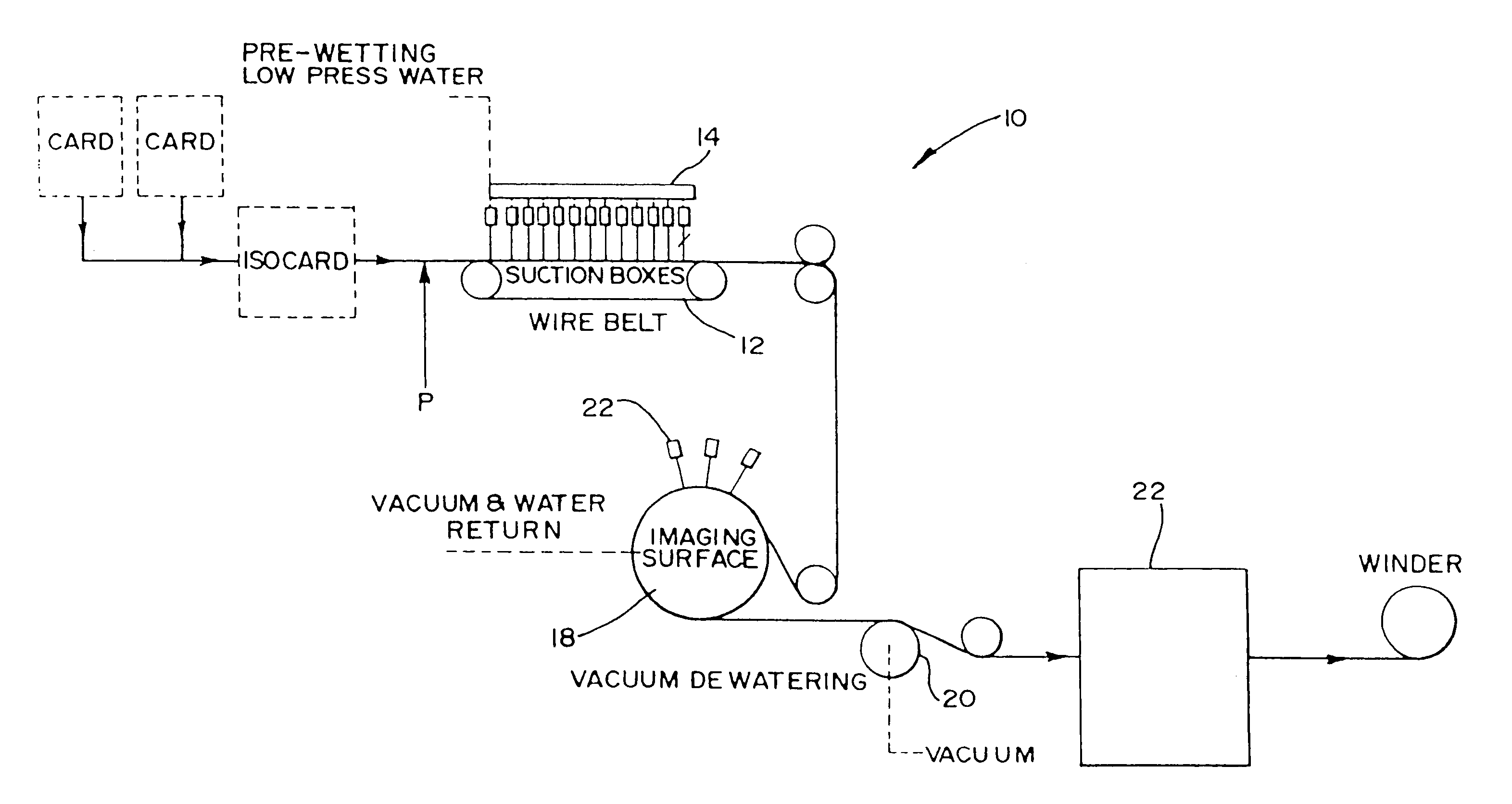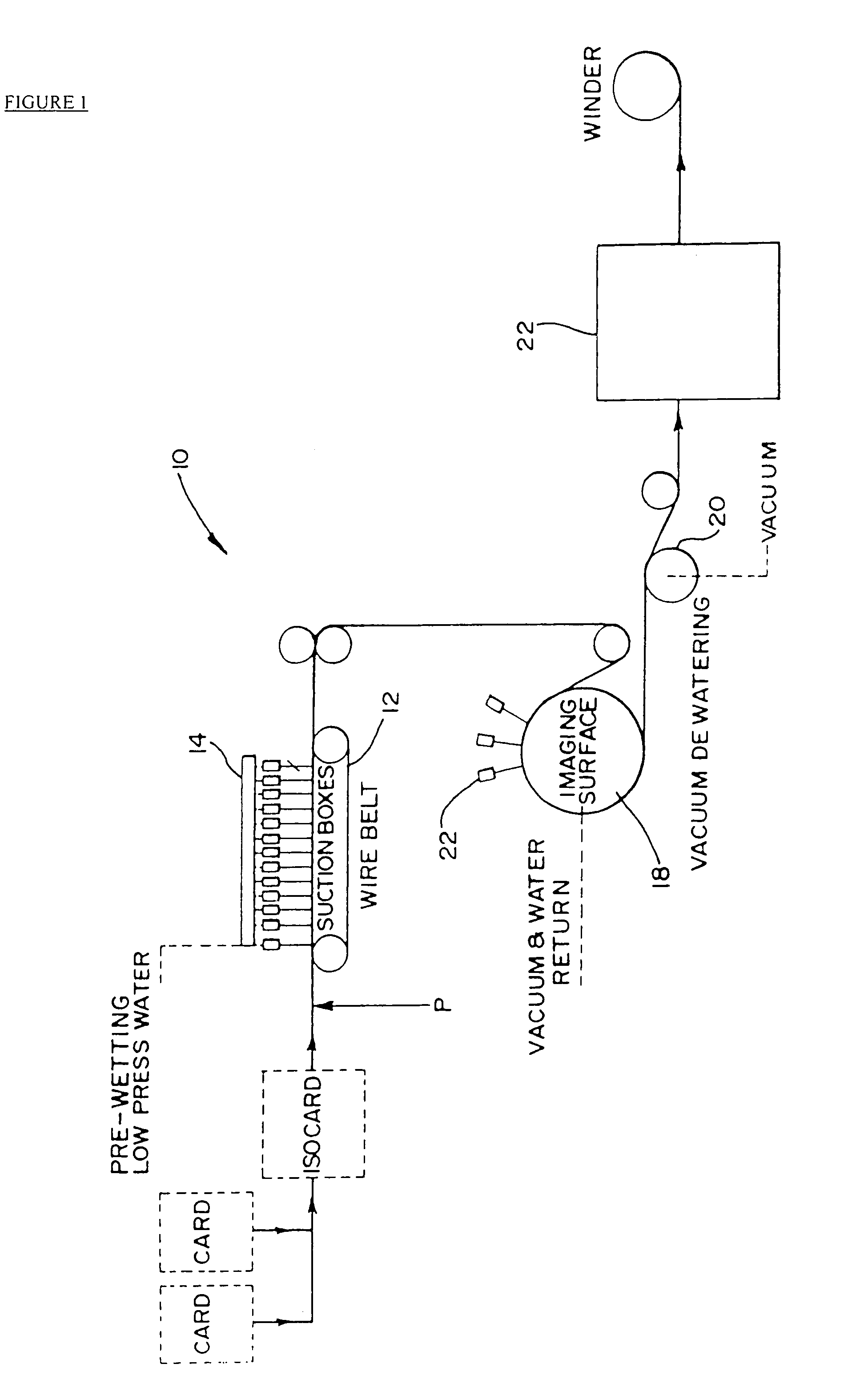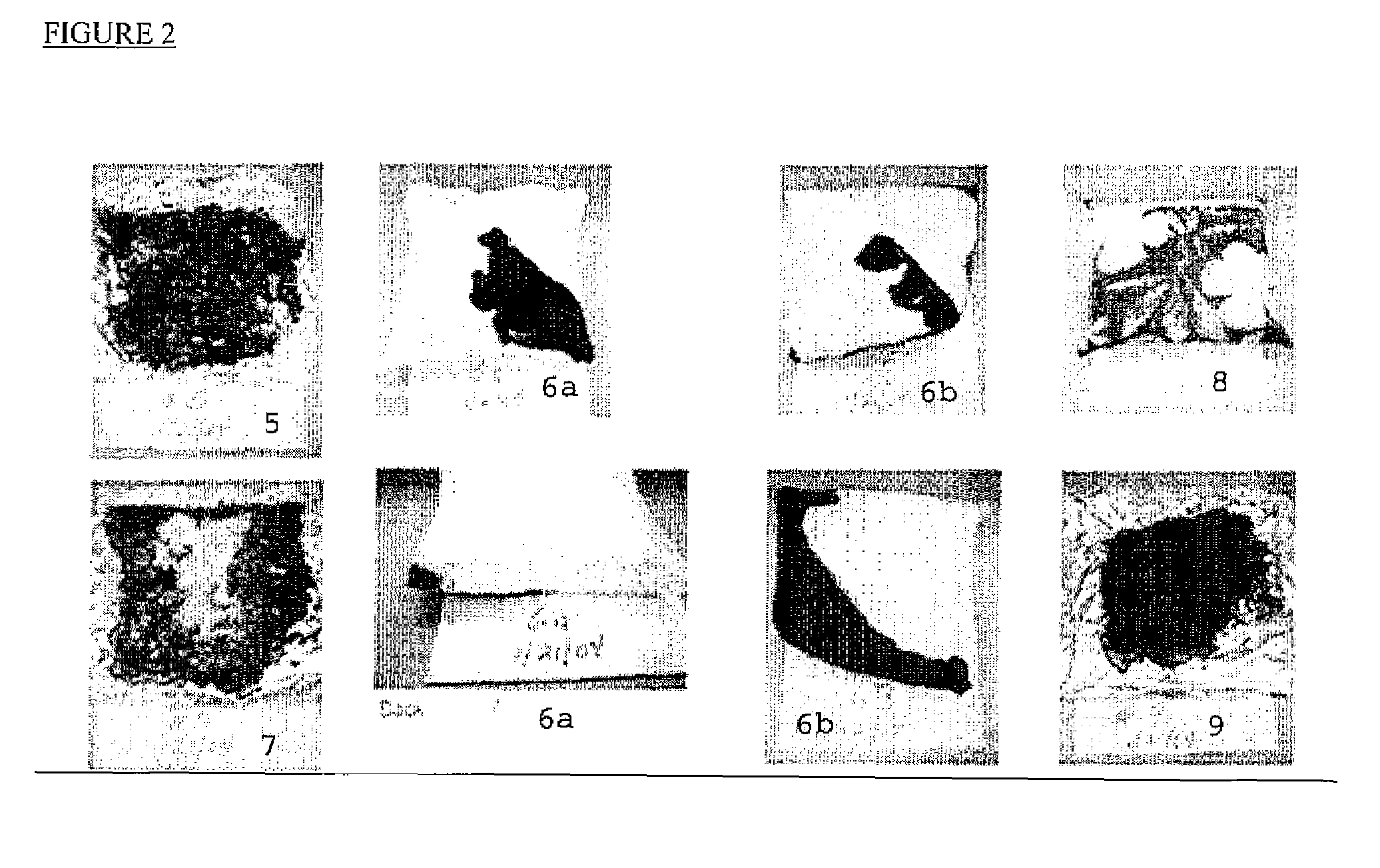Flame-retardant cellulosic nonwoven fabric
a non-woven fabric, flame retardant technology, applied in the direction of weaving, other domestic objects, transportation and packaging, etc., can solve the problems of cellulose, high flammability, lack of proper flammability protection often sought, etc., to achieve the effect of reducing the total percentage of fabric weight los
- Summary
- Abstract
- Description
- Claims
- Application Information
AI Technical Summary
Benefits of technology
Problems solved by technology
Method used
Image
Examples
Embodiment Construction
[0017]While the present invention is susceptible of embodiment in various forms, there is shown in the drawings, and will hereinafter be described, a presently preferred embodiment, with the understanding that the present disclosure is to be considered as an exemplification of the invention, and is not intended to limit the invention to the specific embodiment illustrated.
[0018]The flame retardant nonwoven fabric of the present invention is cost effective, soft, yet durable and suitable for various bedding articles including, but not limited to a mattress component, mattress covers, comforters, bedspreads, quilts, coverlets, duvets, pillows, pillow covers, in addition to other home uses, protective apparel applications, and industrial end-use applications.
[0019]U.S. Pat. No. 3,485,706, to Evans, hereby incorporated by reference, discloses processes for effecting hydroentanglement of nonwoven fabrics. With reference to FIG. 1, therein is illustrated an apparatus for practicing the pr...
PUM
| Property | Measurement | Unit |
|---|---|---|
| weight loss | aaaaa | aaaaa |
| flame retardant | aaaaa | aaaaa |
| weight | aaaaa | aaaaa |
Abstract
Description
Claims
Application Information
 Login to View More
Login to View More - R&D
- Intellectual Property
- Life Sciences
- Materials
- Tech Scout
- Unparalleled Data Quality
- Higher Quality Content
- 60% Fewer Hallucinations
Browse by: Latest US Patents, China's latest patents, Technical Efficacy Thesaurus, Application Domain, Technology Topic, Popular Technical Reports.
© 2025 PatSnap. All rights reserved.Legal|Privacy policy|Modern Slavery Act Transparency Statement|Sitemap|About US| Contact US: help@patsnap.com



